If you’re in the job market, there’s a good chance you have experienced a telephone interview. And if you’ve not yet, you probably will soon! Because conference calls are so useful to businesses, and because they widen the pool of prospective employees, it’s becoming increasingly common for employers to choose to carry out telephone interviews. There are even many telephone interviewers in recruitment agencies. Getting savvy on how to show your full potential over the phone is a good idea. Of course, general tips for job interviews still apply, but teleconferences have their own etiquette which you should wise up to. If you want to ace your next conference call interview, read on.
Start prepping for your telephone interview from the employers’ perspective
There’s already a lot of advice for hosting a conference call which, although not directly relevant to you, can actually be the best way to prepare for a phone interview. It can give you a really good idea of what to expect, particularly those pieces with tips for employers who will hold interviews over the phone. You can even find templates for phone interviews, giving you some idea of how the call might unfold.
Reading up on these things can offer you a little peace of mind and help you get started with proper preparation. During your telephone interview, you’ll be armed with the knowledge of what your potential employer could be looking out for. Knowing what kinds of conversation and questions come up in phone interviews means you can have some broad answers ready. Not having to come up with too much on your feet can really help take the pressure off, and make for a smoother and more professional start to the telephone interview.
Create a FREE Teleconference
Know the specific employer holding the phone interview
This is a basic but vital tip for any interview, although it’s obviously less applicable if you’re having telephone interviews with recruitment agencies. Logic suggests that you’ve chosen to interview for a role because you know something about it, and about the company you’d be joining. But be sure that this is more than a surface knowledge of what they do, or of what your own role would entail.
Do detailed research on the company’s history and philosophy ahead of time. That way, you can tailor responses to show how your experiences and values match the way the company is run.
Different jobs and industries might have specific aspects that you would look into, but there are some general areas which we should all research before a job interview. How and when did it start? Who are their main competitors? How do they differentiate themselves from them? What recent developments have happened in the company, and in the industry broadly?
You shouldn’t just be doing this to impress interviewers or avoid slipping up, though! You’re (hopefully) going to be working there. Learning the company’s ethos in the day-to-day running of the workplace is crucial. Are they a nap-pod and table tennis kind of set up? Do they hold frequent events to encourage employees to socialise and team-build? These will all determine how you feel about the role, and how you approach your telephone interview.
Make a great first impression
It’s a telephone interview, but location is still important
As in a normal interview, your first impression really counts, and tends to be lasting. People can get a lot of information in a matter of seconds, and form an idea of who you are. That means all the information you put across from the moment the telephone interview starts counts. We don’t just mean the things you say. A lot can be transmitted down a phone line besides spoken words. The main point here is that, even if you aren’t on a video call, your location is really important.
Teleconferencing from mobiles is popular and easy to do, so you could be anywhere during your interview! But don’t get carried away and decide to put yourself at ease with the familiar surroundings of your local pub. And while parks and cafes can make great meeting locations once you have the job, any setting that’s so far out of your control is risky. You just don’t know when a dog might start barking incessantly, a child yelling with glee or bawling for ice cream, or the coffee machine sputtering and whirring as if it’s about to take off.
The point is, there are so many potential distractions and noises, that you’re better playing it safe. Aim for somewhere where peace and quiet is pretty much guaranteed. Your bedroom or home office might be a good option. If those aren’t suitably silent or available, you might be able to book a private room in a library nearby.
Manners matter
This applies to all interviews, of course. It’s as true for a face-to-face interview, as a normal telephone interview or a telephone interview with a recruitment agency. And it starts even before the telephone interview. Choosing your location is a part of this, as it shows you’re trying to make the call as peaceful and distraction-free for your interviewers as possible. It also tells them you value their time enough to juggle your schedule to not only fit in the call, but be at a specific place for its duration.
It also means being in that place and ready to begin ahead of the start time. Punctuality is key! So make absolutely sure that you dial into the conference call room on time, or answer the phone the first time that they call you.
Hopefully, the interviewers will choose a conference call bridge which is really easy to use, but just in case, try to familiarise yourself with how their chosen one works so that you don’t encounter any last minute difficulties. Again, this is something to think about well before the interview has even begun.
Note: If you’ve been given a number to dial at a specific time, try dialling before your interview to see how it works. This will help you understand how the conferencing process will work for the real thing.
You will probably be expected to introduce yourself in some way, as a way to break the ice on the conference call, so think in advance about things you might like to say. While you might like to think of a couple of more personal details to share, keep it professional and short. And always thank the interviewers for making the time to review your application, and to hold this phone interview.
The mute button can be friend or foe during a telephone interview
There’s a lot that can go wrong in a virtual meeting, sometimes only slightly and sometimes disastrously. That’s no reason to worry, though, as with the right preparation you can make sure that you avoid a conference call disaster.
One really common, but really damaging mistake is accidental use of the mute button. The mute button can, at times, be your friend – if your dog suddenly starts barking or somebody is ringing your doorbell, and it’s not your turn to talk, then great. But when you need to give full answers to questions, long, unexplained silences are definitely not desirable. So make sure as you prepare for your telephone interview, you learn to use your mute button properly. Generally, you will only ever use the mute button in a phone interview if there is an unexpected disturbance at your end, or if the interviewer asks you to mute yourself. After all, it’s you being interviewed! They want to hear what you have to say.
Be aware of employers’ responses and feelings
Having phone interviews can be a little disconcerting for somebody used to having faces conveying reactions. We learn to rely so heavily on non-verbal behaviour as indicators of our interviewers’ feelings that some people can feel quite lost when these are absent.
But that really doesn’t have to be the case. If you’re wondering how to prepare for a telephone interview, one way to stand out from the crowd and perform to the best of your ability is to learn how to understand vocal cues.
That way, you’ll be more aware of the impression you’re creating. You can be sure that you don’t accidentally sound like you’re lying or appear bored when really you’re just nervous.
But it’s also a great way to get an idea of how your interviewers are responding to your answers. You’ll be able to get a sense of how they feel about what you’re saying. That in turn could help you to work out what they’re looking for in their applicants and how you’re doing so far. It can also allow you to change tac if you can tell they’re not so keen on the route your answer is taking.
For example, you might hear their voices getting quieter as they move away from the phone. Generally, that suggests they’re losing interest or feeling uneasy. Long pauses before responding to you also tends to indicate a lack of engagement. Pen-tapping or other fidgeting says much the same. Try to notice these things, and change your response accordingly.
Behave as if it isn’t a telephone interview
Having the freedom of not being seen can mean we behave differently during a phone interview. But a lot of these behaviours are more audible than we realise. It can be as silly and seemingly meaningless as swivelling on our chairs while we talk, doodling or checking an incoming email.
Worse still, it’s easy to be tempted look something up if you’re asked something you can’t quite remember. Or maybe you never knew it at all… Either way, it’s a bad idea. If interviewers hear you tapping at your keyboard during the telephone interview, they’ll think you’re at best disinterested, and at worst dishonest.
So keep your hands still and let your head do all the work. It’s not all what you know, it’s how you use the knowledge you do have. In a face to face interview, you wouldn’t be able to whip out your phone and do a quick Google search. You shouldn’t treat an audio interview any differently. And your interviewers will almost certainly be onto you.
Use the distance to your advantage
While you don’t want to indulge in any noisy fidgeting or search for information you wouldn’t otherwise know, there are a few sensible benefits to being out of the interview room. Being on a conference call means that there is a new distance between you and the people interviewing you. Put simply, they can’t see you. Make this work for you by having any notes that you think might be useful in front of you. Don’t rely on them too heavily, or read things out verbatim. But having a few handy bullet points can help settle your nerves. You don’t want them to get in the way of conveying your competence!
It’s also advisable to have your CV handy during your phone interview. There is a good chance you’ll be asked about it. You don’t want to create the impression that you may have fudged some of the details. Bear in mind that your interviewers will almost certainly have your CV in front of them during the call. Having a copy yourself means you’re on equal footing, and helps you avoid any slip-ups that can be caused by nerves or poor memory.
Switch up the roles at the end of the phone interview
As with any interview, it’s a good idea to have questions to ask. Don’t think that just because it’s over the phone there won’t be time for small talk or questions. If they ask whether you have any, and you can only ‘um’ and ‘ah’, you’ll seem uninterested and uninvested in the company. As it’s a telephone interview, you can even have these written down in front of you, so there really is no excuse not to be ready!
Asking questions isn’t a total gear-change though. While learning about the company, you’ll still be telling them about yourself and the things that matter to you. For example, if you decide to ask about the company’s environmental policies, you’re saying protecting the planet matters to you.
Questions like this also tell them that you’re serious about working there. Clearly, you’re thinking about what it would mean in real terms. That’s one of the most important things your telephone interview questions need to convey.
For that reason, you might also ask them what they find the best thing about working at that company. Alternatively, you could ask about career progression, suggesting you hope to be there in the long term. You can ask practical things, like who would supervise you and what the chain of command looks like. How will they measure your day to day success and productivity? How autonomous will your average working day be? What are the most vital skills or experiences a candidate needs to bring to the role?
There are loads of different questions to ask. These will depend on the role, the company, the industry, and your own personal interests. The main thing is to make sure that you have them ready and don’t forget to ask!
Create a FREE Teleconference




